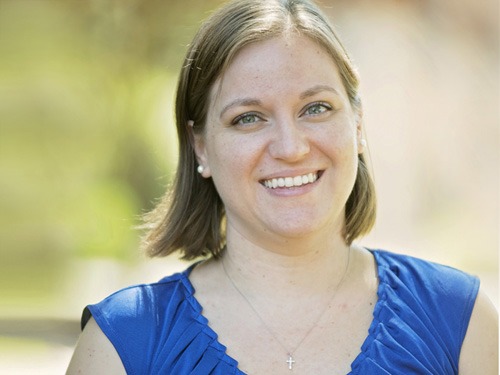Faculty Feature: Dr. Christina Cooper Publishes Research in AERA Open

How do men and women become interested in STEM fields, and what makes them stay?
Dr. Christina Cooper, Assistant Professor of Biology at Corban University, explored this question and more in research she co-authored with Dr. Adam V. Maltese of Indiana University: “STEM Pathways: Do Men and Women Differ in Why They Enter and Exit?”
Their research was recently published in the American Educational Research Association Open, a peer-reviewed open-access journal that specializes in education and learning. Cooper and Maltese explain why the question of STEM interest among men and women is a timely one:
“Given that a persistent question in STEM education research is whether males and females have different interests and predispositions, we sought to determine where differences might occur regarding what interested them in science, who was most critical in sparking this interest, and what factors were most significant for maintaining that interest” (p. 5).
Cooper and Maltese surveyed 7,970 individuals—both students and non-students, in STEM and non-STEM fields. The 125-question survey asked respondents about the people and experiences that first triggered their interest in STEM, whether or not respondents entered college intending to major in a STEM field, and whether they had actually persisted to obtain a STEM degree.
Although many similarities surfaced between men and women, there were a couple of significant differences:
- Males often seemed to become interested in STEM independent from the approval or encouragement of others, often citing activities like tinkering, building, or making things as the experiences that first triggered their interest.
- Females, on the other hand, often cited the involvement of teachers, parents, mentors, and peers as reasons they first became interested in—and persisted in—a STEM field.
What does this all mean?
With the increasing push to make STEM fields equally accessible to men and women, it seems that the solution might lie in educating teachers, faculty, and other possible mentors, guiding them how best to form supportive relationships with women who might be interested in STEM fields.









